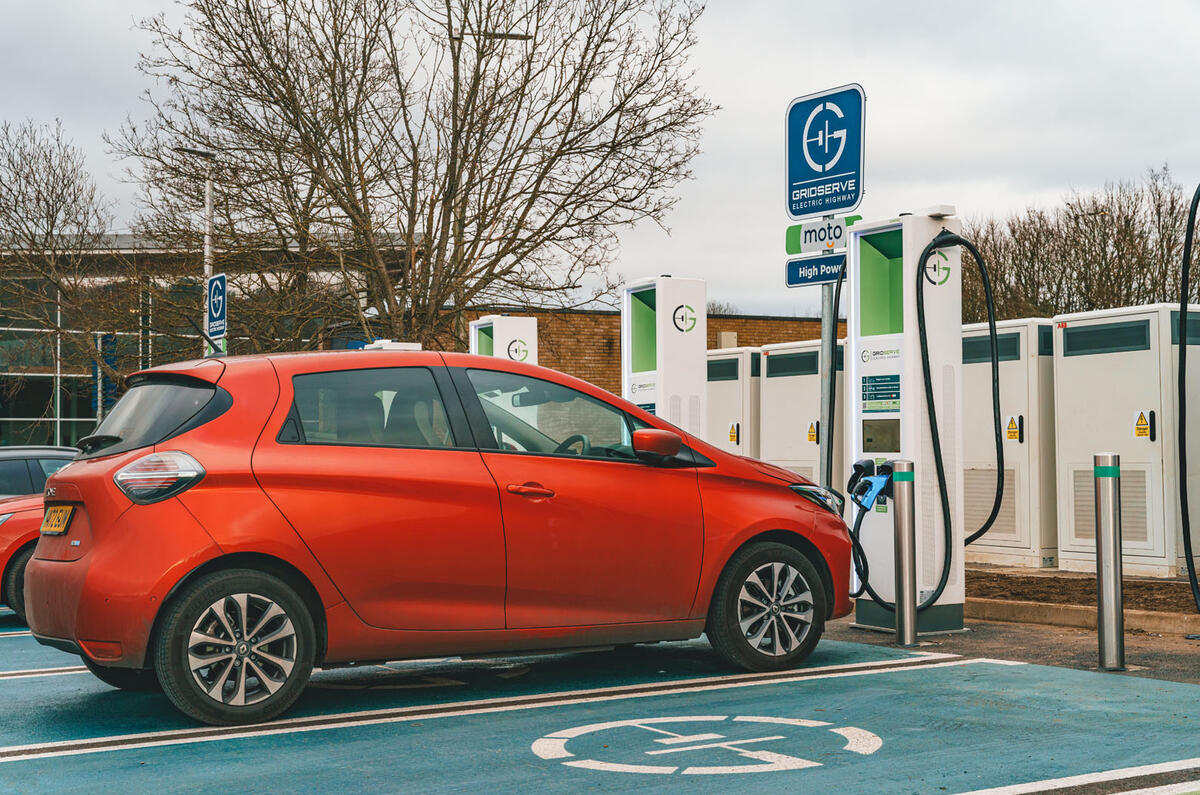The disparity in the number of EV chargers between the south of England and the rest of the country has again grown, with the majority of the 20,612 new chargers installed over the past year being in London.
During that time, the number of chargers (any speed) in the capital grew from 152 devices per 100,000 people to 234 per 100,000, figures from the Department for Transport (DfT) show.
That number is 154% higher than the West Midlands in second (92 per 100,000), which was, bar London, the biggest grower (from 59 per 100,000) and the only region not in the south to break the 80 per 100,000 mark.
The North East, which last year was the second best-catered region outside of London (63 per 100,000), now sits in fifth (72 per 100,000).
With the South East and South West growing from 61 and 51 per 100,000 to 82 and 80 respectively, this shows the growing contrast between the two ends of the country.
Yorkshire (56 per 100,000), the North West (60 per 100,000) and the East Midlands (63 per 100,000) prop up the charts, followed closely by the East (70 per 100,000).
What’s more, the North East is the only region in which the charger total has decreased since April (down 1.2%, or 23 chargers). In the same period, London’s device number grew by 1238.

A DfT spokesperson said: “There are now 64,632 public charge points across the country. We want to go further and faster, supporting more and more people to make the move to zero emission vehicles. We will set out next steps on this in due course.”
In response to the findings, SMMT chief Mike Hawes – a vocal campaigner of regional charging parity – told Autocar: “Increasing charge-point accessibility is essential to enable more consumers to switch to an EV.
“Every measure must be taken to accelerate the roll-out, so that chargers are installed ahead of need and across every region in the country, so that every driver has the confidence to go electric.”
Overall, the DfT’s data revealed 64,632 chargers are now installed across the UK, a 47% increase on July 2023.
Of those,12,474 (19%) are fast chargers (50kW or more), while 38,468 (60%) are slow (between 3kW and 8kW). Just 8% are in the fastest (150kW-plus) bracket.








Join the debate
Add your comment
Well I live in the South East, but I can see the sense in prioritising this region. That's presumably where most EVs are sold, where there is a bigger concentration of on street parking where cars cannot be charged, and where most EVs are needed to combat pollution. The question is, whether the overall rate of charger increase is matching the population of electric vehicles or not?
No surprises there as England doesn't exist outside the M25 and it's going to get even worse now the London Liberal Elitist Anti-Working Class Party are in charge.